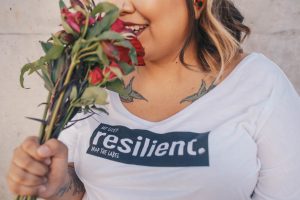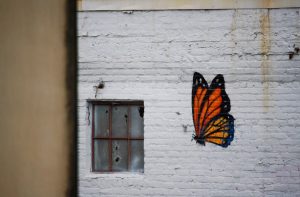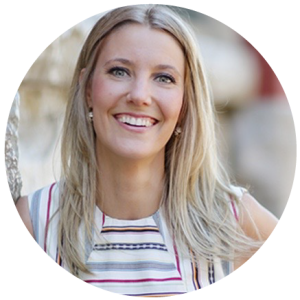This week I read an article in the Globe and Mail that was all about resilience. In the mental health field, we hear a lot about resilience. Why do two people, who have experienced the same kinds of trauma, have different outcomes? What leads to someone being resilient when their life gets turned upside down? A lot of what we read about comes back to specific traits that the individual possesses. For example, having a positive attitude, perseverance, grit etc.
 What this article highlighted, however, was that resilience doesn’t come from the individual but rather from the community the individual surrounds himself with. I actually found this really interesting because so much of what we talk about and focus on in mental health is strengthening the individual. The science behind his research seems pretty sound so I think it deserves more exploration. In thinking about this with eating disorders, I realized just how true this can be. When people feel like they are a part of a community, it makes them feel less isolated and often more willing or able to take steps towards recovery. When we know another person, or people, are there for us and care about our journey, it gives us the courage to explore our inner pain and find steps towards freedom. What I didn’t agree with in the article is the author implied that basically any support was better than none. In eating disorder recovery, I haven’t found this to be the case. If those in an individual’s life aren’t able to support their recovery in a healthy way, then the community can be at times what keeps them stuck. This is where so much work gets done on building resilience within the individual so that they can choose to move themselves forward either way. I think if we wait for the community to show up each time, it may be too late so instead the focus needs to be on finding the right community and also doing your own work; building resilience within and outside of yourself so that when the storm comes, as it always does when we work through recovery, you’re ready and equipped.
What this article highlighted, however, was that resilience doesn’t come from the individual but rather from the community the individual surrounds himself with. I actually found this really interesting because so much of what we talk about and focus on in mental health is strengthening the individual. The science behind his research seems pretty sound so I think it deserves more exploration. In thinking about this with eating disorders, I realized just how true this can be. When people feel like they are a part of a community, it makes them feel less isolated and often more willing or able to take steps towards recovery. When we know another person, or people, are there for us and care about our journey, it gives us the courage to explore our inner pain and find steps towards freedom. What I didn’t agree with in the article is the author implied that basically any support was better than none. In eating disorder recovery, I haven’t found this to be the case. If those in an individual’s life aren’t able to support their recovery in a healthy way, then the community can be at times what keeps them stuck. This is where so much work gets done on building resilience within the individual so that they can choose to move themselves forward either way. I think if we wait for the community to show up each time, it may be too late so instead the focus needs to be on finding the right community and also doing your own work; building resilience within and outside of yourself so that when the storm comes, as it always does when we work through recovery, you’re ready and equipped.
My favorite tools for building internal resilience:
Breathing: I’ve said this many times but learning to come back to the present moment and breathe can ground us and give us a moment to calm ourselves before reacting
Self-Care: Learning to prioritize your wellbeing is critical when living with an abuser in your head who is trying to destroy you. Remember, self care isn’t all bubble baths and cups of tea, sometimes it’s following through with your meal plan or cutting your exercise routine down by 5 minutes.
 Maintaining Hope: Recovery is hard, but it’s made harder when we tell ourselves it won’t happen. Holding onto the belief that full recovery is possible and reminding yourself that there will be good days and bad days gives purpose to our struggle. We can’t promise it will be easy, only that it will be worth it.
Maintaining Hope: Recovery is hard, but it’s made harder when we tell ourselves it won’t happen. Holding onto the belief that full recovery is possible and reminding yourself that there will be good days and bad days gives purpose to our struggle. We can’t promise it will be easy, only that it will be worth it.
If you are feeling pulled to be a bigger part of our community, please reach out. We are always here to provide support and want you to know you aren’t alone.
 Kaela Scott is a Registered Clinical Counsellor who specializes in Eating Disorders. She runs her own private practice and works with the Looking Glass Foundation in both their summer camp and their Hand In Hand Program. She has been passionate about working with eating disorders since freeing herself from her own struggle and realizing what it is like to be happy and well. When she isn’t working, you can find Kaela either cozying up with a cup of tea and her friends or up in the mountains going for a hike.
Kaela Scott is a Registered Clinical Counsellor who specializes in Eating Disorders. She runs her own private practice and works with the Looking Glass Foundation in both their summer camp and their Hand In Hand Program. She has been passionate about working with eating disorders since freeing herself from her own struggle and realizing what it is like to be happy and well. When she isn’t working, you can find Kaela either cozying up with a cup of tea and her friends or up in the mountains going for a hike.